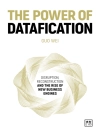This book provides a complete introduction to the rapidly expanding field of Knowledge organization (KO), presenting historical precedents and theoretical foundations in a discursive, intelligible form, covering the philosophical, linguistic and technical aspects. In the contemporary context of global information exchange through linked data, Knowledge organization systems (KOS) need to be represented in standard inter-operable formats. Different formats for KOS representation including MARC, Dublin Core, SKOS and OWL are introduced as well as the application of Knowledge organization to a variety of activities and contexts: education, encyclopedic knowledge, the Internet, libraries, archives, museums, galleries and other institutions collecting and providing access to recorded knowledge.
Key coverage includes:
• ontology and epistemology in KO
• KO structures: lists, hierarchies, facets…
• KO types: tagging, taxonomies, thesauri, classifications…
• conceptual analysis of documents
• applications in the digital age.
Covering theoretical and practical aspects of KO and using real-life examples to illustrate its application, this book will be a valuable resource for students, researchers and practitioners of Knowledge organization, information organization, cataloguing and classification.
विषयसूची
Contents
List of abbreviations
1 Focusing the field
1.1 What is knowledge?
1.1.1 Knowledge as representation of networks
1.1.2 Data, information, knowledge, understanding, wisdom
1.1.3 Informational systems at various levels
1.2 What is organization?
1.3 What is knowledge organization (KO)?
1.3.1 Personal and social knowledge
1.3.2 Knowledge as recorded in documents
1.3.3 Organizing public contents
1.4 A brief history of KO
1.4.1 KO in early civilizations
1.4.2 KO in the ancient East
1.4.3 KO in ancient Greece
1.4.4 KO in the Middle Ages
1.4.5 KO in early Modernity
1.4.6 Classification in modern libraries
1.4.7 KO in the Digital Age
2 Theories of knowledge organization
2.1 Theories are needed
2.2 From precepts to concepts
2.3 Bottom-up and top-down procedures
2.4 The dimensions of knowledge
2.4.1 User-based approaches
2.4.2 Collection approaches
2.4.3 Documental approaches
2.4.4 Perspective approaches
2.4.5 Phenomenon approaches
3 Structural principles in knowledge organization
3.1 Words in natural language
3.2 Terms in controlled vocabularies
3.3 Lists
3.3.1 Alphabetical vs systematic order
3.3.2 Literary warrant
3.3.3 Canonical sequence
3.3.4 Increasing complexity
3.3.5 Quantitative measure
3.3.6 Spatial contiguity
3.3.7 Later-in-evolution
3.3.8 Later-in-time
3.4 Hierarchies
3.4.1 Types
3.4.2 Parts
3.4.3 Instances
3.5 Facets
3.5.1 Fundamental categories
3.5.2 Citation order of facets
3.5.3 Sources of foci
3.5.4 Common facets
3.6 Themes
3.4.1 Base theme and particular themes
3.4.2 Phase relationships and free facets
3.4.3 Rhemes
3.4.4 How much syntax is needed?
4 Knowledge organization systems (KOS)
4.1 The notion of KOS
4.2 The collection dimension of a KOS
4.3 Special and general KOS
4.4 KOS types
4.4.1 Keyword systems and folksonomies
4.4.2 Taxonomies
4.4.3 Subject heading lists
4.4.4 Thesauri
4.4.5 Classification schemes
4.4.6 Ontologies
5 Representation of knowledge organization structures
5.1 Headings in paper catalogues catalogs and indexes
5.2 Subject authority data in bibliographic databases
5.3 Subject metadata of digital documents
5.4 The Semantic Web and linked data
5.5 KOSs as linked data
6 Applying knowledge organization
6.1 Organizing phenomena
6.2 Organizing educational and reference contents
6.3 Indexing documents
6.3.1 Content analysis
6.3.2 Content representation
6.3.3 Automatic methods
6.3.4 Non-textual documents
6.4 Organizing collections
6.5 KO in the digital environment
6.5.1 Applying KO to digital documents
6.5.2 Problems and benefits of digital KO
6.5.3 Designing organized interfaces
6.6 Conclusion
References
Index
लेखक के बारे में
Claudio Gnoli is an academic librarian and researcher in knowledge organization at the University of Pavia, Italy. His work focuses on Knowledge organization theory and KO systems – especially faceted classification schemes – and their application to digital information systems. He is co-author of Interdisciplinary Knowledge Organization with R. Szostak and M. Lopez-Huertas (2016), co-editor of the ISKO Encyclopedia of Knowledge Organization and author of numerous journal articles, conference proceedings and four Italian-language titles. He is a member of the Scientific Advisory Council of the International Society for Knowledge Organization, and he serves on the editorial board of the Basel Register of Thesauri, Ontologies & Classifications (BARTOC).












